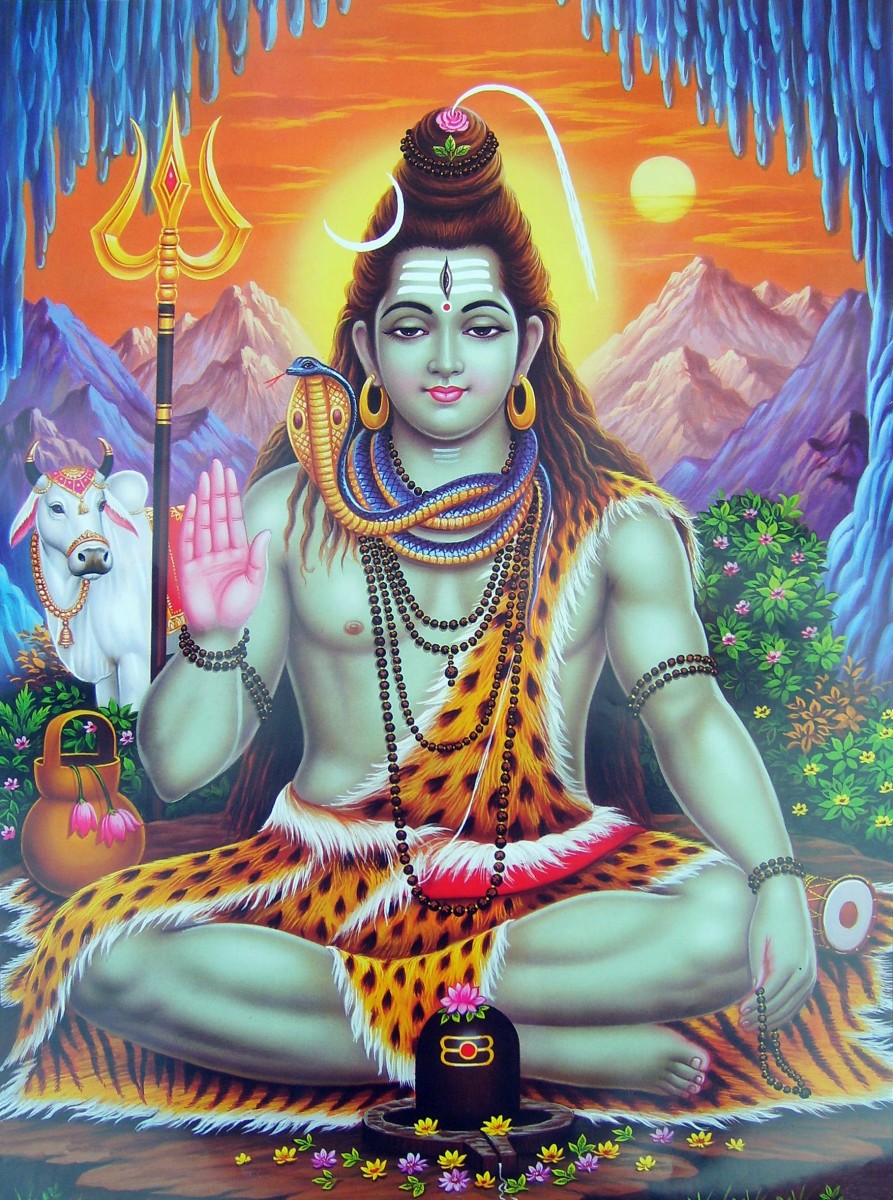You are using an out of date browser. It may not display this or other websites correctly.
You should upgrade or use an alternative browser.
You should upgrade or use an alternative browser.
"Killing or smuggling a cow is equivalent to raping a Hindu girl or destroying a Hindu temple."
- Thread starter 88m3
- Start date
More options
Who Replied?They worship cows there lol and some black people follow that dumb ass religion
There are black hindus now?

Mohammed Sindhi
a really simple admirer
One side doesn't like beef , one side don't like pork...I'll eat them both...
Dude, chicken and goatmeat are much better. You won't regret.
Amphibious
Land, water, wherever.
There are black hindus now?

Blacks created Hinduism, just like everything else (including the Earth we stand on).
ReturnOfJudah
Veteran
All they need to worry about is gettin some lotion to put on they ashy ass feet
Yeah....forget the floating corpses in their rivers
Doing Yoga doesnt make you a hindu, and Russel is a Bhuddist.
ReturnOfJudah
Veteran
http://www.diffen.com/difference/Buddhism_vs_HinduismDoing Yoga doesnt make you a hindu, and Russel is a Bhuddist.
Hinduism is about understanding Brahma, existence, from within the Atman, which roughly means "self" or "soul," whereas Buddhism is about finding theAnatman — "not soul" or "not self." In Hinduism, attaining the highest life is a process of removing the bodily distractions from life, allowing one to eventually understand the Brahma nature within. In Buddhism, one follows a disciplined life to move through and understand that nothing in oneself is "me," such that one dispels the very illusion of existence. In so doing, one realizes Nirvana.
In Dr Sarvepalli Radhakrishnan's words,"Buddhism, in its origin at least, is an offshoot of Hinduism."
One of the six major orthodox schools of Hinduism is also called Yoga, which has its own epistemology and metaphysics, and is closely related to Hindu Samkhya philosophy.
- Yoga as an analysis of perception and cognition; illustration of this principle is found in Hindu texts such as the Bhagavad Gita and Yogasutras, as well as a number of Buddhist Mahāyāna works;
- Yoga as a path to omniscience; examples are found in Hinduism Nyaya and Vaisesika school texts as well as Buddhism Mādhyamaka texts, but in different ways;[32]
- Yoga as a technique for entering into other bodies, generating multiple bodies, and the attainment of other supernatural accomplishments; these are described in Tantric literature of Hinduism and Buddhism, as well as the Buddhist Sāmaññaphalasutta;[33]



http://www.diffen.com/difference/Buddhism_vs_Hinduism
Hinduism is about understanding Brahma, existence, from within the Atman, which roughly means "self" or "soul," whereas Buddhism is about finding theAnatman — "not soul" or "not self." In Hinduism, attaining the highest life is a process of removing the bodily distractions from life, allowing one to eventually understand the Brahma nature within. In Buddhism, one follows a disciplined life to move through and understand that nothing in oneself is "me," such that one dispels the very illusion of existence. In so doing, one realizes Nirvana.
In Dr Sarvepalli Radhakrishnan's words,"Buddhism, in its origin at least, is an offshoot of Hinduism."
One of the six major orthodox schools of Hinduism is also called Yoga, which has its own epistemology and metaphysics, and is closely related to Hindu Samkhya philosophy.
https://en.wikipedia.org/wiki/Yoga
- Yoga as an analysis of perception and cognition; illustration of this principle is found in Hindu texts such as the Bhagavad Gita and Yogasutras, as well as a number of Buddhist Mahāyāna works;
- Yoga as a path to omniscience; examples are found in Hinduism Nyaya and Vaisesika school texts as well as Buddhism Mādhyamaka texts, but in different ways;[32]
- Yoga as a technique for entering into other bodies, generating multiple bodies, and the attainment of other supernatural accomplishments; these are described in Tantric literature of Hinduism and Buddhism, as well as the Buddhist Sāmaññaphalasutta;[33]



looks like you proved yourself wrong friend, Gangbangers in Chicago wear the star of david, guess theyre all jews
 Sikhs are an offshoot of Islam and Hinduism, guess that makes them both
Sikhs are an offshoot of Islam and Hinduism, guess that makes them both  peace though
peace thoughReturnOfJudah
Veteran
looks like you proved yourself wrong friend, Gangbangers in Chicago wear the star of david, guess theyre all jewsSikhs are an offshoot of Islam and Hinduism, guess that makes them both
peace though
Those black gangbangers in Chicago are the real Jews. The star has nothing to do with it. That's why blacks look foolish for practicing some BS Hindu religion. But i wouldn't expect a black Muslim to understand. So how did i prove myself wrong again?

Last edited:
Blacks created Hinduism, just like everything else (including the Earth we stand on).
Ok, we got another loon on our hands

IVS
Superstar
He aint lying though. You go into them caves in Yhind-ia and Greater Yhind-ia (Indo-china) and you'll be surprised what you find.Ok, we got another loon on our hands
The modern day Hindu's will show you art in painting like:

But you'll see the mountain cave art and archaeological sites looks like:





It's interesting to me because the "Jewish" lore mentions the Angel and\or King (malak and melek in Hebrew respectively, note the M-L-K triconsonantal root) Samael riding upon a camel in the shape of a serpent...which is poetic speech for the Kings throne\mount (vahan). Sam-ael is attached to the Fall of Man mythos. It was Samael mounted on the snake that spoke to eve in the garden, not the serpent itself.
Sidebar:
Even more interesting that the serpent and dragon (naga) become evil in the western ideologies, but in the far east it is revered. And we find the lore of Nuwa and FuXi entering modern day China, with its symbol of the compass and square. But I aint one to gossip.
Alsp the Chinese call India Yhin-du and the write it 印(yhin\yin - print, seal or mark) 度(dhu - hand measuring using a tool).
Leads me to wonder if there is any connection between the quetzalcoatl of the America's and the dragon of the Far East.
Last edited:
ADevilYouKhow
Rhyme Reason
GetInTheTruck
Member
Seems like another attempt to shyt on Modi for trying to tackle smuggling and corruption overall...I fukks with Modi, he's good for India and a leader that was sorely needed by Indians.






